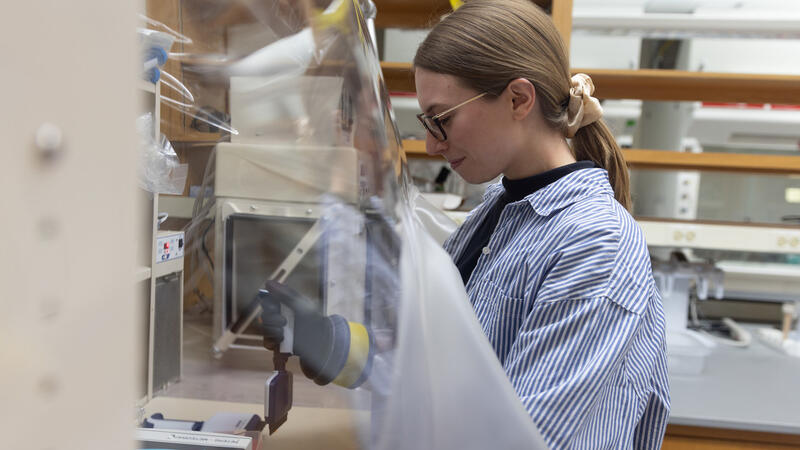News
Sustainable Biomass Conversion
Amy Enright wins GLBRC early career award
Enright, a doctoral candidate in genetics at the University of Wisconsin–Madison, was awarded the 2024 Jennifer L. Reed Bioenergy Science Award, given annually to recognize early-career women with the Great Lakes Bioenergy Research Center for outstanding research and leadership.
UW–Madison scientists have improved a method for making a popular painkiller from plants instead of petrochemicals. The approach could help make plant-based fuels more cost competitive.
The latest spotlight features Emma Boismier, a first year graduate student in the TerAvest Lab within Michigan State University's Biochemistry Department. Boismier was born and raised in Michigan, and earned a bachelor's in genomics and molecular genetics.
University of Wisconsin–Madison faculty have recognized Great Lakes Bioenergy Research Center science director Robert Landick for his contributions to teaching, research, and service.
New research from the University of Wisconsin–Madison decodes the evolutionary pathway of regulatory proteins, the molecules that help control gene expression.
With its streamlined genome, environmental versatility, and a single-minded focus on fermenting sugar into alcohol, Zymomonas mobilis could be a star player in the quest to replace fossil fuels with plant-based alternatives. UW–Madison scientists are working to understand what makes this microbe tick.
Zymomonas naturally produces ethanol, but with genetic modifications researchers have found ways to trick the microbe into making more valuable products like isobutanol, a form of alcohol that holds more energy and can more easily replace gasoline and jet fuel. There’s one big hurdle, though: While Zymomonas tolerates high levels of ethanol, even a little bit of isobutanol will stunt its growth.
A team led by GLBRC researchers at MSU used a novel analytical method known as yield stability zones to show the relationship between crop yield and soil health. The results can help farmers lower input costs and increase yield, while lessening environmental impact.
Midwestern farmers could play an immediate and significant role in fighting climate change by adopting practices that trap more carbon in the soil, according to a nationwide analysis of strategies for removing greenhouse gasses from the atmosphere.
Linda Horianopoulos, a postdoctoral researcher who studies the metabolic diversity of yeasts in the Hittinger Lab at the University of Wisconsin-Madison, was born and raised in the small town of Kitimat, British Columbia. Read on to learn how an early interest in math and science led her to study at one of the top universities in Canada before eventually heading south for Madison.
In 2022, MSU professor Federica Brandizzi sent seeds fortified with amino acids aboard NASA’s Artemis I mission. Now, she and her team have planted those seeds to find ways to sustainably grow healthier plants for the future and, perhaps, even grow plants in space.




